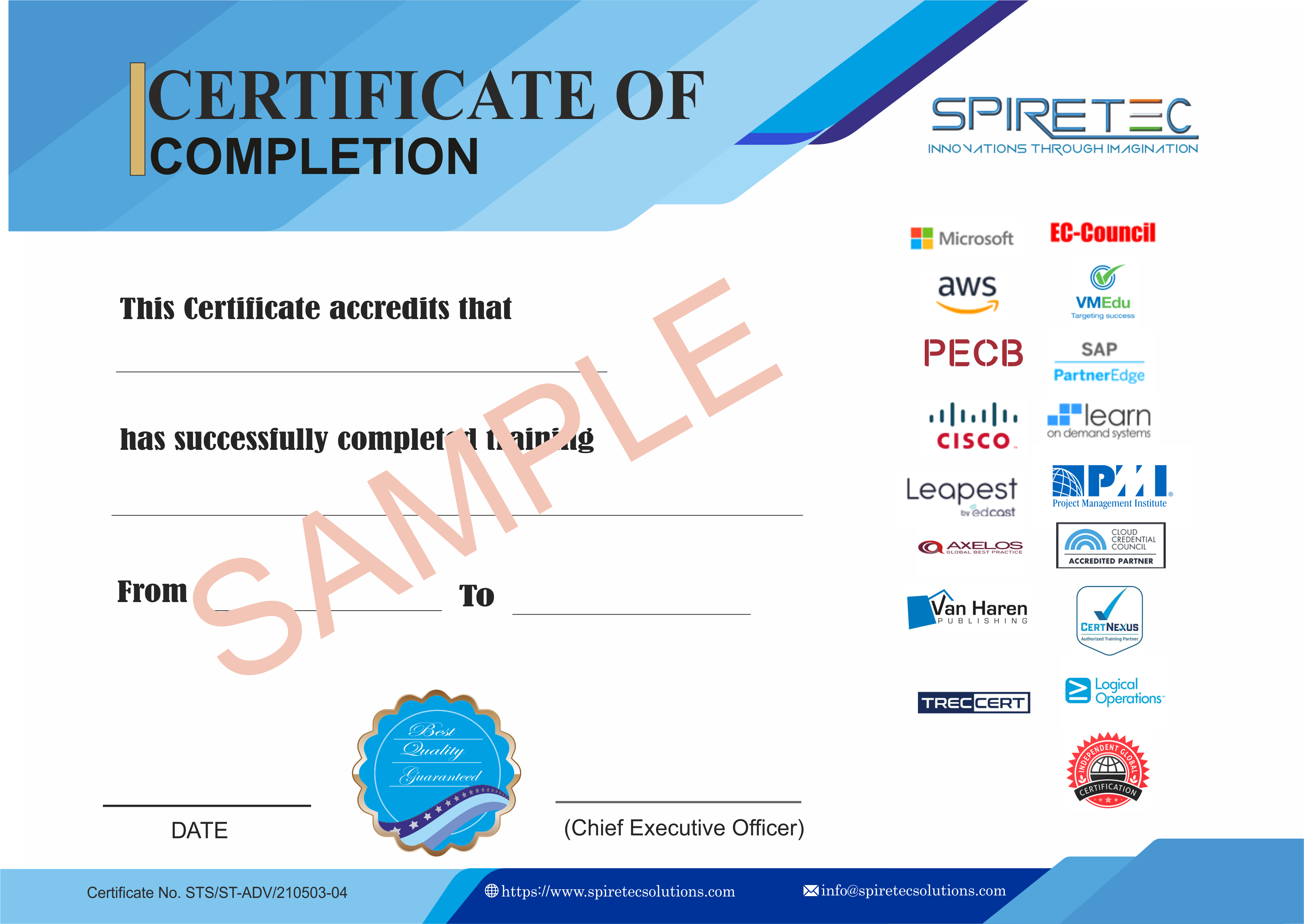The Scrum Fundamentals Certified (SFC) course is designed to provide learners with a comprehensive understanding of the Scrum framework and its applications in project management. It covers the core concepts, principles, roles, and processes necessary to implement Scrum effectively. Through the course, learners will gain insights into the history of Scrum, its evolution, and the reasons why it's a preferred Agile methodology for managing complex projects. The SFC course is structured to ensure that participants understand the purpose of the SBOK Guide and how to utilize it for optimal results. It introduces the Scrum Principles, such as empirical process control and self-organization, which are foundational to the Scrum methodology. Additionally, the course contrasts Scrum with traditional project management techniques, highlighting the benefits and efficiencies Scrum brings to the table. By exploring the Scrum Aspects and delving into the Scrum Processes, learners will comprehend the practical applications of Scrum across various project phases, from initiation to release. The course also addresses the Scalability of Scrum, ensuring that participants are equipped to apply Scrum practices in organizations of different sizes and complexities. Through this certification, individuals can establish their foundational knowledge, contributing to their teams as effective Scrum practitioners and helping organizations in their journey toward agile transformation.
Course Prerequisites
To ensure learners are equipped for the Scrum Fundamentals Certified (SFC) course offered by Koenig Solutions, the following are recommended:
-
Basic understanding of project management concepts: While extensive experience isn't required, familiarity with project management basics is helpful.
-
Interest in Agile methodologies: A passion for Agile frameworks like Scrum aids in effective learning.
-
Teamwork and collaboration: Scrum relies on team dynamics, so willingness to work in teams is crucial.
-
Openness to change and continuous improvement: Adaptability and an iterative mindset align well with Scrum principles.
-
Basic proficiency in English: As course material and instruction are in English, comprehension and communication in the language are necessary.
Target Audience for Scrum Fundamentals Certified (SFC)
The SFC course is designed for professionals seeking foundational knowledge in Scrum and Agile practices:
-
Project Managers
-
Scrum Masters
-
Product Owners
-
Developers/Programmers
-
Designers
-
Testers
-
Business Analysts
-
Team Leaders
-
Managers of Scrum teams
-
Teams transitioning to Scrum
-
Professionals pursuing a career in project management
-
Individuals preparing for Scrum certification exams
-
Stakeholders in Scrum projects
-
Quality Assurance Professionals
-
Software Engineers
-
Aspiring Agile Coaches
-
Process/Performance Improvement Professionals
Course Outline:
Day 1
1. Introduction
-
Overview of the SBOK™ Guide and key Scrum concepts.
-
Summary of Scrum principles, aspects, and processes.
2. Agile Overview
3. Scrum Overview
4. Scrum Roles
5. Scrum Principles
-
Key principles: Empirical Process Control, Self-Organization, Collaboration, Value-Based Prioritization, Time Boxing, and Iterative Development.
6. Scrum Aspects
-
Examination of aspects: Organization, Business Justification, Quality, Change, and Risk.
7. Scrum Project Phases – Initiate
Day 2
1. Scrum Project Phases - Plan & Estimate
2. Scrum Project Phases – Implement
3. Scrum Project Phases - Review & Retrospect
4. Scrum Project Phases – Release
5. Scalability of Scrum







 Live Online Training (Duration : 16 Hours)
Live Online Training (Duration : 16 Hours)
